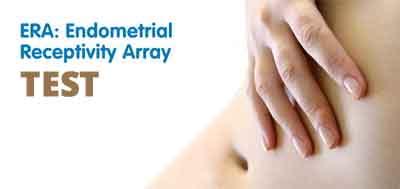- Home
- Editorial
- News
- Practice Guidelines
- Anesthesiology Guidelines
- Cancer Guidelines
- Cardiac Sciences Guidelines
- Critical Care Guidelines
- Dentistry Guidelines
- Dermatology Guidelines
- Diabetes and Endo Guidelines
- Diagnostics Guidelines
- ENT Guidelines
- Featured Practice Guidelines
- Gastroenterology Guidelines
- Geriatrics Guidelines
- Medicine Guidelines
- Nephrology Guidelines
- Neurosciences Guidelines
- Obs and Gynae Guidelines
- Ophthalmology Guidelines
- Orthopaedics Guidelines
- Paediatrics Guidelines
- Psychiatry Guidelines
- Pulmonology Guidelines
- Radiology Guidelines
- Surgery Guidelines
- Urology Guidelines
Endometrial Receptivity Analysis improves pregnancy rate in women under 38: Study

New Delhi : Endometrial Receptivity Analysis (ERA), a test that provides insight into how receptive a womans uterus will be at a particular stage in her menstrual cycle, improves pregnancy rate in women under the age of 38 by 24 per cent, said a study.
The conclusion was gained after testing the ERA test on 356 patients from five countries. The test personalises treatment and works out the day in which the embryo transfer will be successful for 85 per cent of patients.
According to the study conducted by Igenomix, a world's giant in reproductive genetic laboratory, the only reason why women cannot get pregnant despite repeated IVF attempts is the wrong window implantation.
It said that ERA test works by analysing the expression of 238 genes in the endometrium, providing insight into its receptivity or lack thereof when embryo transfer takes place.
"In recent years, it has enhanced the reproductive prognosis of many patients by offering a personalised window of implantation. This test determines the optimal moment for embryo transfer on a case-by-case basis, fully incorporating personalised treatment into the fertility clinic," said the study.
Research states that endometrial receptivity takes place in a limited window of time, between the 19th and 21st day of the standard menstrual cycle, which is known as the "implantation window".
In a natural cycle, ovulation and endometrial development are in sync so that the implantation window opens at the exact moment when an embryo is ready to be implanted. This window may be shifted in assisted reproduction and it is important to personalise treatment in order to determine the optimal moment.
The study demonstrates the Personalisation of the endometrial factor of an infertile couple taken into consideration before commencing treatment in order to enhance their chances of reproduction.
Emphasising about the advantage of the test, the study said that the ERA test can save on time, expensive tests and diagnoses, play a crucial role in embryo transfer and making sure the embryo is implanted in the specified window of time.
In total, 356 patients under the age of 38 years took part between 2013 and 2016, receiving treatment in fertility clinics located in five different countries (Spain, Bulgaria, Belgium, Panama and Italy).
According to data provided by this study, all women under 38 years old with endometrial factor are eligible to try the ERA test, as their reproductive prognosis can increase by 24 per cent if embryo transfer takes place on the day recommended by the test.

Disclaimer: This site is primarily intended for healthcare professionals. Any content/information on this website does not replace the advice of medical and/or health professionals and should not be construed as medical/diagnostic advice/endorsement or prescription. Use of this site is subject to our terms of use, privacy policy, advertisement policy. © 2020 Minerva Medical Treatment Pvt Ltd